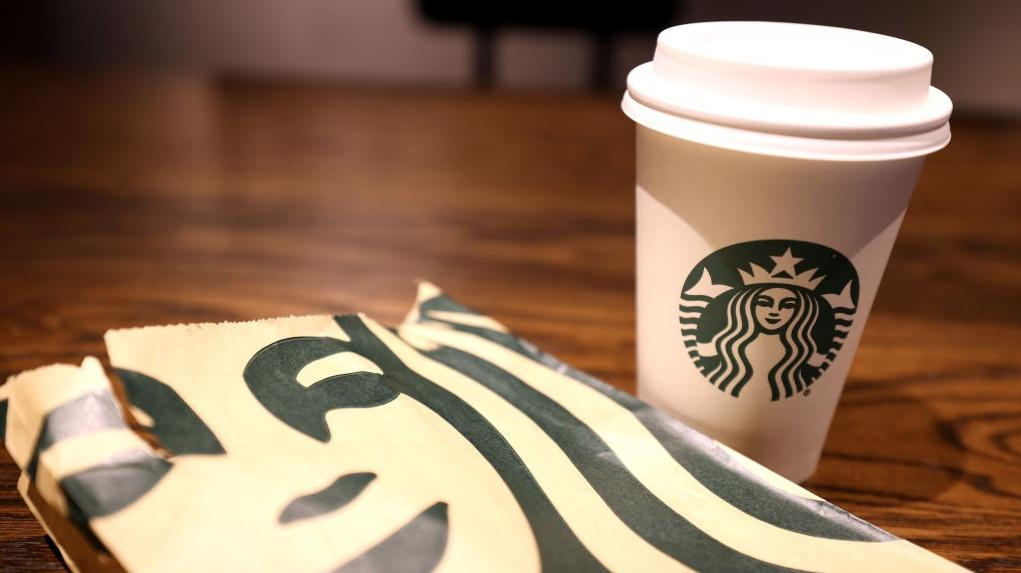Starbucks Accused Of $900 Million Manipulation
A watchdog group alleges the Starbucks app reloads funds in a way that's unfair to consumers.
The Washington Consumer Protection Coalition, a consumer watchdog group, has accused Starbucks of unfairly gaining as much as $900 million in profit by using "dark patterns" to coerce customers into unnecessarily loading funds into the Starbucks app, even in advance of any actual purchases.
"Dark patterns" is the technical term for "deceptive or manipulative designs on digital platforms that trick users into making unintended choices." According to a complaint filed by the Washington Consumer Protection Coalition late last month, Starbucks has employed these so-called dark patterns on its mobile app and digital Starbucks payment card.
How Starbucks allegedly profits from its app design
The complaint explains that Starbucks only allows app users to load money into Starbucks' payment platform in specific amounts, starting at a minimum of $10 (and going up by $5 increments after that, up to $100). When a customer wants to add funds to the payment platform, the app displays $25.00 as the default reload amount. The option to tip the barista within the app, meanwhile, is limited to $0.50 increments, which means a customer can't necessarily spend the entirety of their remaining balance on a tip. Finally, if there's just a little bit of money left on the Starbucks card in the app, customers can't put it toward an in-app purchase and supplement it with a second form of payment; payment can only be split in person at the register. All of this means that there are limited ways to zero out the balance on Starbucks' in-app card.
Perhaps none of this would be an issue if consumers could reclaim the unspent money they'd previously loaded into the Starbucks app and have it returned to the original form of payment—but you pretty much can't do that. Since the aforementioned restrictions make it "difficult or impossible" to reclaim funds from an in-app Starbucks card except to make Starbucks purchases, the complaint alleges that Starbucks' practices "trap consumers into perpetually reloading funds on their Starbucks Cards in an effort to use all remaining funds, which essentially amounts to an involuntary Starbucks subscription."
The complaint highlights the experiences of several consumers who say they've been riding the hamster wheel that is perpetual digital card reloading and have suffered harm because of it.
Starbucks' practices, the complaint says, "merit urgent investigation and action by the Attorney General," and the document outlines the benefit of these practices to Starbucks. In a statement, Washington Consumer Protection Coalition campaign manager Chris Carter said that a few unspent dollars here and there might not seem like a lot, but for America's second largest fast food chain, it adds up.
"Over the last five years, Starbucks has claimed nearly $900 million in unspent gift card and app money as corporate revenue, boosting corporate profits and inflating executive bonuses," he said.
For its part, Starbucks doesn't sound too concerned.
"We strive to make every customer's visit to Starbucks effortless, delightful and personalized," a Starbucks spokesperson told The Takeout via email. "No matter how customers choose to pay at Starbucks, the goal is to deliver a seamless payment experience. By accepting a variety of payment methods in the store and the Starbucks app, customers can select the option most convenient and relevant to them. Starbucks is committed to working with all regulatory bodies to ensure it remains in compliance with all laws and regulations."
Maybe you're feeling stung by the alleged tactics cited in the coalition's complaint. Or you might be steamed about the recent $1 upcharge for Refresher drinks made without water. Or you're rankled by the diminished rewards offered by the loyalty program. In any case, if you're looking to skip Starbucks for your next coffee fix, there's now a map for that.
